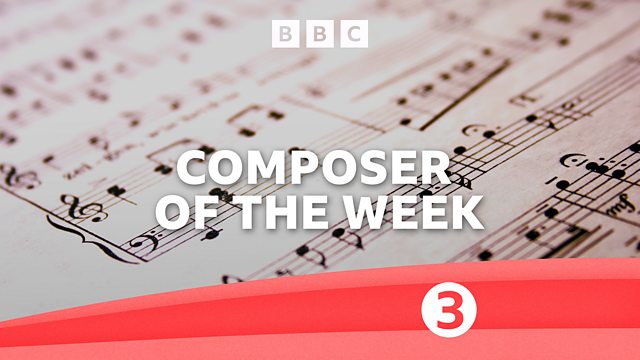
The Sorbonne
Donald Macleod considers the significance of Farrenc's education and family circumstances for her professional ambitions. She came from a distinguished line going back to Louis XIV.
Composer of the Week marks its 70th birthday by featuring a composer suggested by Radio 3 listeners.
Over the last seven decades, Composer of the Week has explored the life and music of just about every major composer in classical music, and plenty of less well-known names too. As the programme reached its 70th birthday this year, Donald Macleod challenged listeners to come up with a composer who had never appeared on the programme before. Over four-and-a-half-thousand suggestions were sent in, including figures from all kinds of historical periods and musical genres. This special anniversary week of programmes explores just one of those names: a composer whose story seems particularly intriguing. Her music was much celebrated in her lifetime, indeed it remains as beguiling today as it was to her audiences in 19th-century Paris. Listeners may wonder how the name of Louise Farrenc became so lost to history.
Louise Farrenc may not be a household name in the twenty-first century, but in her own lifetime she enjoyed a career of international standing; her music was played across Europe.; her music was played across Europe. She was twice recognised by the French Institute for her outstanding contribution to chamber music and she was also an accomplished pianist who received favourable reviews for her public performances. For thirty years she was a valued teacher at the Paris Conservatoire and, in the latter part of her life, she cultivated a special interest in early music.
Farrenc was born in 1804, a year before Fanny Hensel, Felix Mendelssohn's older sister. However, the fifty-plus published works that make up her legacy immediately set her apart. While the majority of her contemporaries had a tendency to focus on smaller forms, songs, choral works and salon pieces for the piano, Farrenc's creative interests involved writing music for much larger combinations of instruments, including quintets, a sextet, a nonet , orchestral overtures and three symphonies.
In the second part of his survey, Donald Macleod considers the significance of Farrenc's education and family circumstances on her professional ambitions. She came from a distinguished line of painters, sculptors and engravers, that could trace its lineage back to Louis XIV. She grew up in an apartment in the Sorbonne, amid an enclave of artists who enjoyed royal privileges. As well as her natural proficiency in music, Farrenc was good at drawing, painting, could speak Italian and English and express herself most elegantly in her mother tongue, French.
Last on
Music Played
-
![]()
Jeanne Louise Dumont Farrenc
No. 10 Adagio In F Sharp Minor - Trente Etudes Dans Tous Les Tons Op. 26
Performer: Konstanze Eickhorst.- CPO 999 879-2.
- 6.
-
![]()
Jeanne Louise Dumont Farrenc
Air russe varie, op.17
Performer: Konstanze Eickhorst (piano).- CPO 999 879-2.
- 1.
-
![]()
Jeanne Louise Dumont Farrenc
Trio in E minor Op.45 for flute/violin, cello & piano
Ensemble: Cantabile.- Thorofon CTH 2079.
- 6.
-
![]()
Jeanne Louise Dumont Farrenc
4th mvt: Allegro assai - 1st symphony, op.32 in C minor
Performer: Chamber Orchestra of North German Radio.- CPO: 999 603-2.
- 1.
Broadcasts
- Tue 17 Dec 2013 12:00����ý Radio 3
- Tue 17 Dec 2013 18:30����ý Radio 3
Beethoven Unleashed – the box set
What was really wrong with Beethoven?
Composers A to Z
Who knew? Five eye-opening stories from Composer of the Week
Five reasons why we love Parry's Jerusalem
What is the strange power of Jerusalem which makes strong men weep?
A man out of time – why Parry's music and ideas were at odds with his image...
The composer of Jerusalem was very far from the conservative figure his image suggests.
Composer Help Page
Find resources and contacts for composers from within the classical music industry.





